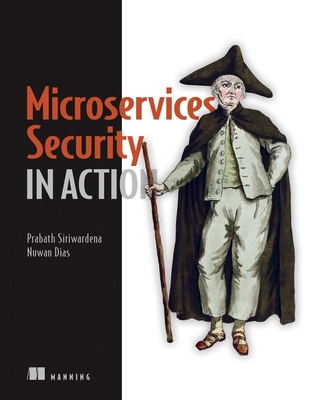買這商品的人也買了...
-
 Linux 驅動程式, 3/e (Linux Device Drivers, 3/e)
Linux 驅動程式, 3/e (Linux Device Drivers, 3/e)$980$774 -
 $352低功耗藍牙開發權威指南
$352低功耗藍牙開發權威指南 -
 使用者故事對照 (User Story Mapping: Discover the Whole Story, Build the Right Product)
使用者故事對照 (User Story Mapping: Discover the Whole Story, Build the Right Product)$580$458 -
 打動人心的產品設計|頂尖設計師打造成功產品的黃金法則 (Designing Products People Love: How Great Designers Create Successful Products)
打動人心的產品設計|頂尖設計師打造成功產品的黃金法則 (Designing Products People Love: How Great Designers Create Successful Products)$580$458 -
 3天搞懂財經資訊:看懂財經新聞、企業財報不求人,找出年年下蛋的金雞母!
3天搞懂財經資訊:看懂財經新聞、企業財報不求人,找出年年下蛋的金雞母!$300$270 -
 3天搞懂基金買賣:3000元起,累積你的第一桶金 (最新增訂版)
3天搞懂基金買賣:3000元起,累積你的第一桶金 (最新增訂版)$300$237 -
 $500汽車黑客大曝光 (The Car Hacker's Handbook:A Guide for the Penetration Tester)
$500汽車黑客大曝光 (The Car Hacker's Handbook:A Guide for the Penetration Tester) -
 3天搞懂資產配置:存富、創富、守富、傳富,四步驟靈活規劃財富藍圖,投資理財一把罩!
3天搞懂資產配置:存富、創富、守富、傳富,四步驟靈活規劃財富藍圖,投資理財一把罩!$300$270 -
 $454黑客大曝光:工業控制系統安全 (Hacking Exposed Industrial Control Systems: ICS and SCADA Security Secrets & Solutions)
$454黑客大曝光:工業控制系統安全 (Hacking Exposed Industrial Control Systems: ICS and SCADA Security Secrets & Solutions) -
 人人可作卡米狗:從零打造自己的 LINE 聊天機器人
人人可作卡米狗:從零打造自己的 LINE 聊天機器人$500$390 -
 3天搞懂 ETF 投資:跨市跨境高CP值,讓你繞著地球轉N圈!
3天搞懂 ETF 投資:跨市跨境高CP值,讓你繞著地球轉N圈!$300$270 -
 MIS 一定要懂的 82個伺服器建置與管理知識
MIS 一定要懂的 82個伺服器建置與管理知識$420$332 -
 領域驅動設計:軟體核心複雜度的解決方法 (Domain-Driven Design: Tackling Complexity in the Heart of Software)
領域驅動設計:軟體核心複雜度的解決方法 (Domain-Driven Design: Tackling Complexity in the Heart of Software)$680$530 -
 圖解資訊安全與個資保護|網路時代人人要懂的自保術
圖解資訊安全與個資保護|網路時代人人要懂的自保術$380$323 -
 區塊鏈的商業應用成功實例|企業轉型x創新x營收成長 (Blockchain for Business)
區塊鏈的商業應用成功實例|企業轉型x創新x營收成長 (Blockchain for Business)$380$323 -
 史上最完整細節:Kubernetes 超應用全書
史上最完整細節:Kubernetes 超應用全書$980$833 -
 Microservices Security in Action
Microservices Security in Action$1,980$1,881 -
 Go語言高併發與微服務實戰
Go語言高併發與微服務實戰$534$507 -
 深入淺出 Go (Head First Go)
深入淺出 Go (Head First Go)$880$695 -
 $1,010CISSP 權威指南, 8/e (CISSP All-in-One Exam Guide, 8/e)
$1,010CISSP 權威指南, 8/e (CISSP All-in-One Exam Guide, 8/e) -
 無卡無現金時代:網路支付業務規劃設計及實作
無卡無現金時代:網路支付業務規劃設計及實作$690$587 -
 $505DevSecOps 實戰
$505DevSecOps 實戰 -
 The Hacker Playbook 3 中文版:滲透測試實戰 (紅隊版)
The Hacker Playbook 3 中文版:滲透測試實戰 (紅隊版)$650$507 -
 CYBERSEC 2022 臺灣資安年鑑 ─ 零信任資安時代來臨:信任邊界徹底瓦解,安全需源自反覆驗證
CYBERSEC 2022 臺灣資安年鑑 ─ 零信任資安時代來臨:信任邊界徹底瓦解,安全需源自反覆驗證$179$161
相關主題
商品描述
Use this book to learn how to conduct a timely and thorough Risk Analysis and Assessment documenting all risks to the confidentiality, integrity, and availability of electronic Protected Health Information (ePHI), which is a key component of the HIPAA Security Rule. The requirement is a focus area for the Department of Health and Human Services (HHS) Office for Civil Rights (OCR) during breach investigations and compliance audits. This book lays out a plan for healthcare organizations of all types to successfully comply with these requirements and use the output to build upon the cybersecurity program.
With the proliferation of cybersecurity breaches, the number of healthcare providers, payers, and business associates investigated by the OCR has risen significantly. It is not unusual for additional penalties to be levied when victims of breaches cannot demonstrate that an enterprise-wide risk assessment exists, comprehensive enough to document all of the risks to ePHI.
Why is it that so many covered entities and business associates fail to comply with this fundamental safeguard? Building a HIPAA Compliant Cybersecurity Program cuts through the confusion and ambiguity of regulatory requirements and provides detailed guidance to help readers:
- Understand and document all known instances where patient data exist
- Know what regulators want and expect from the risk analysis process
- Assess and analyze the level of severity that each risk poses to ePHI
- Focus on the beneficial outcomes of the process: understanding real risks, and optimizing deployment of resources and alignment with business objectives
What You’ll Learn
- Use NIST 800-30 to execute a risk analysis and assessment, which meets the expectations of regulators such as the Office for Civil Rights (OCR)
- Understand why this is not just a compliance exercise, but a way to take back control of protecting ePHI
- Leverage the risk analysis process to improve your cybersecurity program
- Know the value of integrating technical assessments to further define risk management activities
- Employ an iterative process that continuously assesses the environment to identify improvement opportunities
Who This Book Is For
Cybersecurity, privacy, and compliance professionals working for organizations responsible for creating, maintaining, storing, and protecting patient information
商品描述(中文翻譯)
使用本書學習如何進行及時且全面的風險分析和評估,並記錄所有對電子受保護健康資訊(ePHI)的機密性、完整性和可用性的風險。這是HIPAA安全規則的重要組成部分,也是美國衛生及人類服務部(HHS)民權辦公室(OCR)在違規調查和合規審計中的重點領域。本書提供了一個計劃,幫助各種類型的醫療機構成功遵守這些要求,並利用結果來建立網絡安全計劃。
隨著網絡安全漏洞的增加,受OCR調查的醫療服務提供者、支付者和業務合作夥伴的數量也大幅增加。當遭受漏洞的受害者無法證明存在一個全面的企業級風險評估時,往往會加重處罰。為什麼這麼多受覆蓋實體和業務合作夥伴無法遵守這一基本保障措施呢?《建立符合HIPAA的網絡安全計劃》消除了法規要求的混亂和模糊,並提供了詳細的指導,幫助讀者:
- 瞭解並記錄所有已知的患者數據存在的情況
- 知道監管機構對風險分析過程的期望和要求
- 評估和分析每個風險對ePHI的嚴重程度
- 關注過程的有益結果:瞭解真正的風險,優化資源部署並與業務目標保持一致
你將學到什麼:
- 使用NIST 800-30執行符合民權辦公室(OCR)等監管機構期望的風險分析和評估
- 瞭解這不僅僅是一個合規練習,而是重新掌握保護ePHI的控制權的方法
- 利用風險分析過程改進你的網絡安全計劃
- 知道整合技術評估的價值,進一步定義風險管理活動
- 使用迭代過程持續評估環境,找到改進機會
適合閱讀對象:
- 從事創建、維護、存儲和保護患者信息的組織的網絡安全、隱私和合規專業人士











